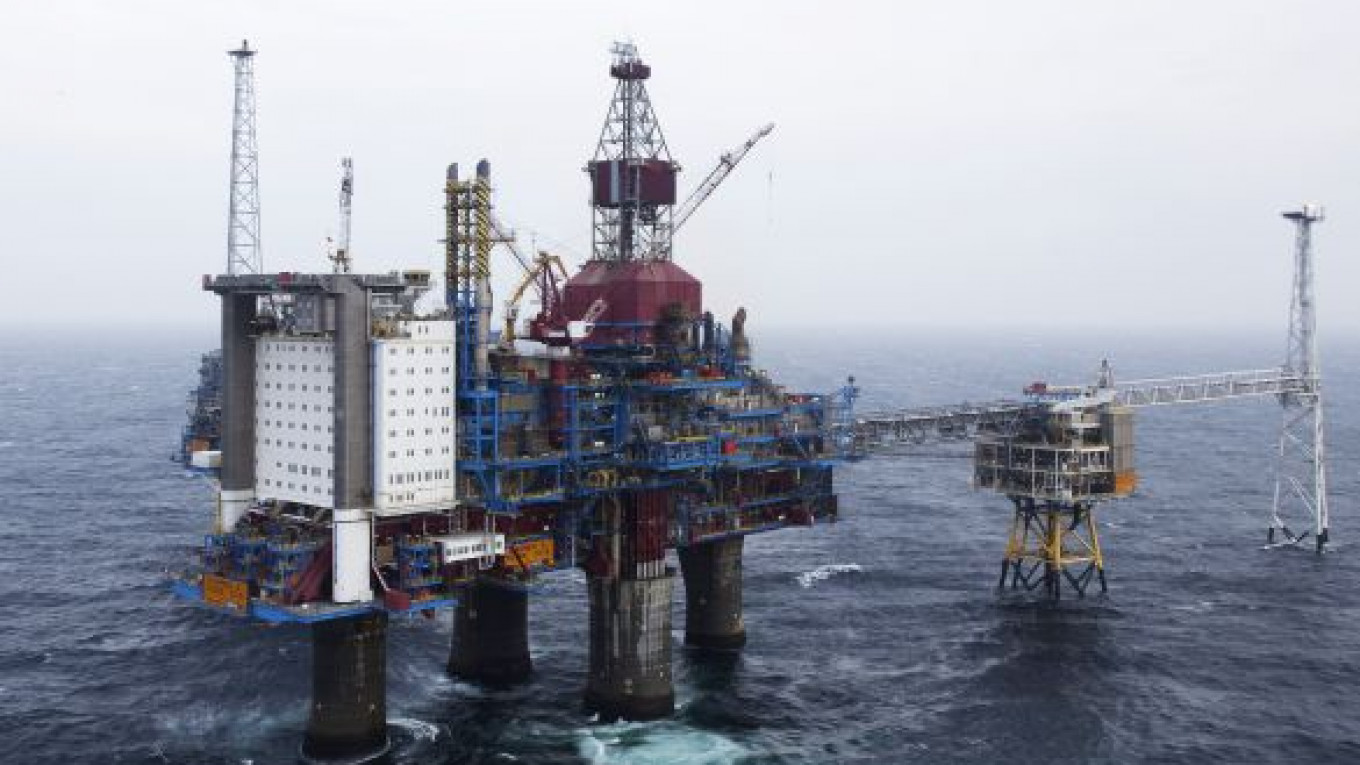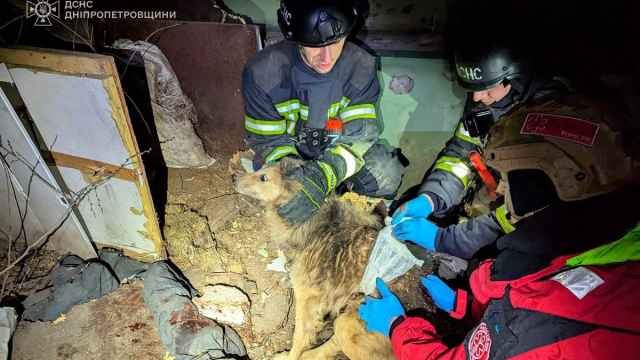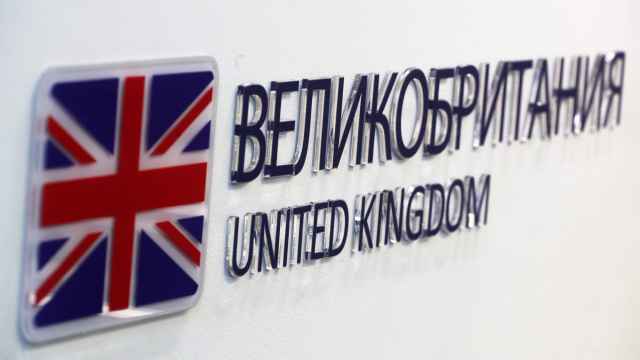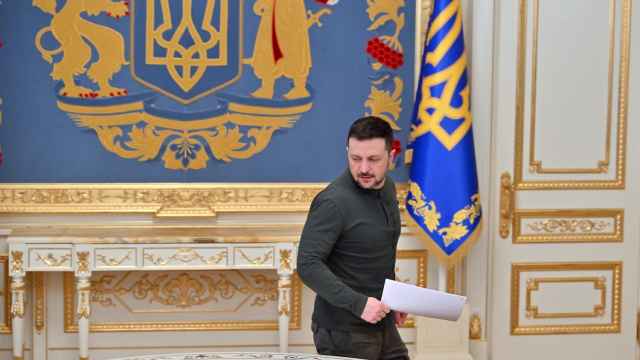LUKoil is applying for permission to operate in Norway as the company looks to expand outside Russia, where high taxes and limited access to new fields have bogged down the oil industry.
LUKoil, the biggest private oil producer in Russia, wants to be “pre-qualified” by the Norwegian government — which will allow it to bid for licenses to operate offshore fields, a spokeswoman for the Norwegian Petroleum Directorate said Monday.
The application, filed at the end of last year, was general and not for any specific field, said the spokeswoman, Eldbjorg Melberg.
Calls to LUKoil's press service went unanswered Monday, which was a day off in Russia. But LUKoil has a long record of enthusiastically pursuing projects overseas, having built up the most foreign assets of all domestic oil companies.
“Compared with the other resource-rich countries, Norway is considered the most attractive because of the attitude from the state and its relations with businesses,” said Shamil Yenikeyeff, a research fellow at Oxford Institute for Energy Studies.
The Norwegian Petroleum Directorate and another government agency, the Norwegian Petroleum Safety Authority, have no deadlines for considering applications, but officials usually require at least two months to come to a conclusion, Melberg said by phone from Stavanger, Norway. The agencies then report their recommendations to the Petroleum and Energy Ministry, which makes the ultimate decision, she said.
LUKoil's application came in just before Christmas, according to a report in Norway's Teknisk Ukeblad magazine last week.
The petroleum directorate usually evaluates a company from a geological prospective, while the petroleum safety authority scrutinizes a company's competence in the areas of health, safety and environment, Melberg said.
Norway has pre-qualified such major international industry players as France's GdF, Austria's OMV, Canada's Petro-Canada and Germany's E.On Ruhrgas since it introduced the procedure in 2002.
Yenikeyeff predicted success for LUKoil as well.
“They have experience,” he said. “They shouldn't have problems.”
Russia and Norway showed goodwill in September when they signed an agreement to end a 40-year dispute over the Arctic borderline in the Barents Sea — an area that may have sizeable oil and gas reserves. Norwegian government-controlled Statoil won the competition in 2007 to join Gazprom in the development of the huge Shtokman field in the Barents Sea.
LUKoil also has ties with Statoil as they are developing Iraq's major West Qurna-2 deposit after winning a bid in December 2009. A Statoil spokesman didn't respond to an e-mail — sent Monday afternoon — asking if the companies planned any joint projects in Norway.
LUKoil finished a production unit at its Nizhny Novgorod refinery, making it the first of its four Russian refineries to produce Euro-4 standard gasoline. The catalytic cracker raises total gasoline output at Nizhny Novgorod by 78 percent to 3.2 million tons annually, the company said in a statement. Of that, about 1.4 million tons will be at least Euro-4 standard, a spokesman said.
A Message from The Moscow Times:
Dear readers,
We are facing unprecedented challenges. Russia's Prosecutor General's Office has designated The Moscow Times as an "undesirable" organization, criminalizing our work and putting our staff at risk of prosecution. This follows our earlier unjust labeling as a "foreign agent."
These actions are direct attempts to silence independent journalism in Russia. The authorities claim our work "discredits the decisions of the Russian leadership." We see things differently: we strive to provide accurate, unbiased reporting on Russia.
We, the journalists of The Moscow Times, refuse to be silenced. But to continue our work, we need your help.
Your support, no matter how small, makes a world of difference. If you can, please support us monthly starting from just $2. It's quick to set up, and every contribution makes a significant impact.
By supporting The Moscow Times, you're defending open, independent journalism in the face of repression. Thank you for standing with us.
Remind me later.






